
Academic and Research Cooperation (Model)
Bringing the World in: Internationalization Takes Deep Root at Shih Chien University
Bringing the World in: Internationalization Takes Deep Root at Shih Chien University
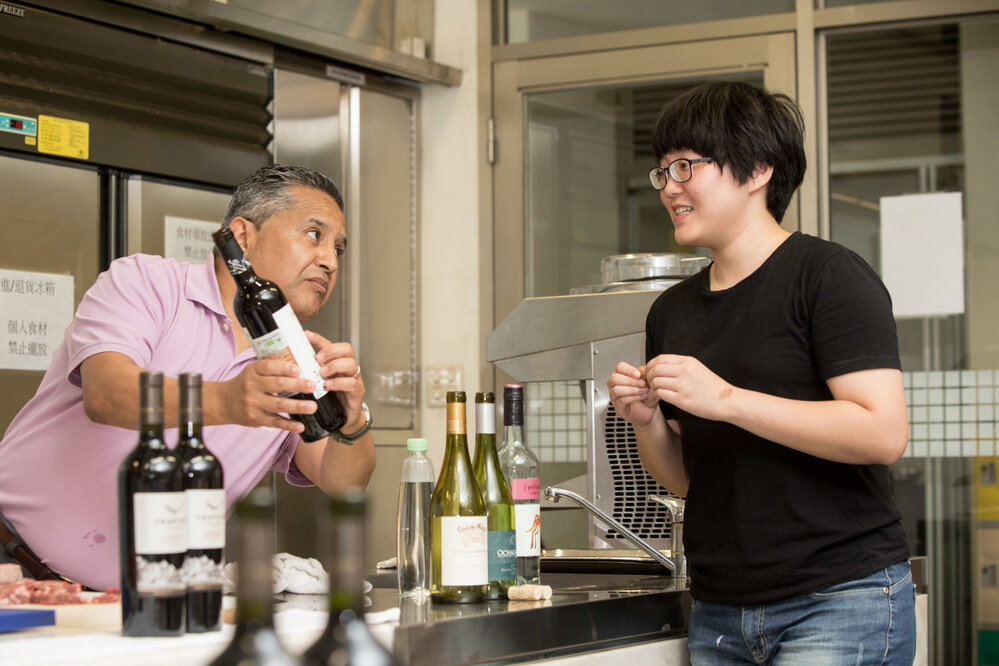
Shih Chien University launched the Asia Summer University in 2015, inviting faculty members from its sister universities abroad to teach courses. This continuous and innovative project has offered transnational, trans-university and trans-disciplinary courses that prompt students to make a beeline for enrollment.
The campus is supposed to be quieter than usual during the summer vacation. Located in a tranquil corner of the Dazhi district, Shih Chien University (SCU) is nonetheless unusually bustled with students, whose number is no less than that in a typical class day. The light in a classroom is on because a 9 a.m. class has begun. Instead of being bleary-eyed and late to class, students have arrived and been seated, listening attentively to the instructor behind the lectern.
Holding a bottle of red wine, the foreign instructor is instructing students how to derive related information from its label and cork. It’s true! The instructor is teaching students how to taste wine, even though it’s early in the morning. Subsequently, the instructor begins to fry beef steak, and the air is filled with an appetizing aroma. We, as a media team preparing to photograph the scene and interview the students, cannot resist the culinary delight, not to mention the students in the classroom.
Why is there a course so attractive at SCU? This is the primary reason for our visit: the Asia Summer University.
No more superficial exchange, SCU pursues comprehensive internationalization
The President Michael Chen has a close relationship with SCU. He taught here when it was named Shih Chien School of Home Economics, and served as the Vice President when it was upgraded to a university. Then he was the President of Providence University and Ling Tung University. In 2011, he returned to SCU and thenceforth served as its President. Therefore, no one is more familiar with the university’s distinguishing features than Chen. However, he did not wake up to the problem as to SCU has lagged behind in terms of internationalization until he returned from other universities.
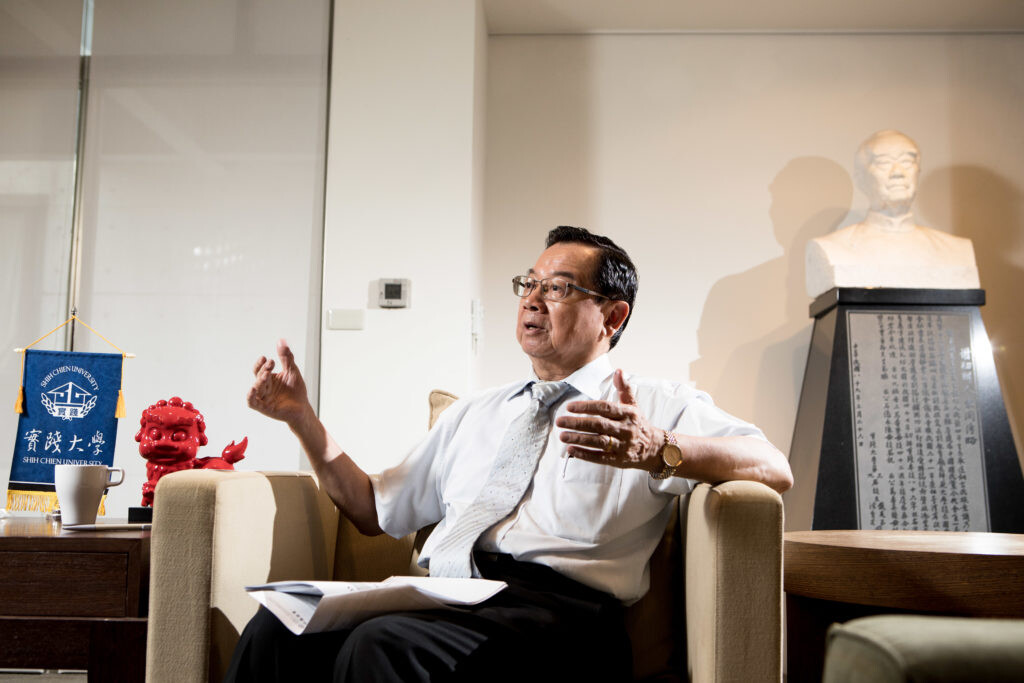
Michael Chen, President of Shih Chien University
“By lack of a university-level office of international affairs, SCU had less than 5 international students at that time. We had sister universities, but our interaction was limited to a few exchange students,” so said Prof. Tony Kuo, who served as the former Dean of International Affairs.
Seven years ago, Tony Kuo was entrusted with a mission by taking up the position of the Dean of International Affairs in times of emergencies. One day during the summer vacation that year when he was taking a ferry to Green Island with his family, Kuo received a phone call from SCU when the ferry pitched violently from side to side. “No sooner did I picked up the phone, than the President asked me to go back on Monday for some serious business,” Kuo said laughingly. He was enjoying the leisure time during the summer vacation as a university faculty member. The abrupt phone call interrupted his trip, making him feel somewhat disappointed. Nevertheless, he managed to go back and report to the President in Taipei on Monday.
President Chen got straight to the point by asking Kuo to take up the position of the Dean of International Affairs, expecting him to help SCU make substantial advance in internationalization. Kuo told Chen that “to promote internationalization, we need an office of international affairs at the university level.” Chen replied affirmatively without demur. Kuo had had some ideas in his mind before making this request. He developed a six-year roadmap that will yield results on a triennial basis, aiming to raise SCU’s visibility in the international higher education arena.
“New challenges have arisen since the Office of International Affairs was upgraded. Our administrative apparatus worked with continual glitch and friction. The stakes were quite high.” Tony Kuo emphasized that the whole problem is fundamentally structural. “Thanks to the support from the President and the board of directors, otherwise we could hardly promote internationalization at SCU no matter how hard we try.” It is under this pressure that the Office of International Affairs spared no effort to implement its strategies by sticking to the guidelines of “internationalized teaching, internationalization at home, and comprehensive internationalization.”
Michael Chen told us that internationalized teaching entails the promotion of teaching in English, which requires qualified faculty members and the support of administrative resources. It just took us 5 years to accomplish this task. The prince of the Kingdom of Eswatini even gave a speech on behalf of all foreign graduates at the graduation ceremony: “The Kingdom of Eswatini continues to exist for 50 years. It has maintained a 50-year diplomatic relation with Taiwan. And the King of the Kingdom of Eswatini is 50 years old. The three “50-year” events deserve our celebration in Taiwan.” Michael Chen claimed that SCU not only managed to achieve internationalization, but also contributed to Taiwan’s public diplomacy.
SCU pursues internationalization at home right after the goal of internationalized teaching was attained. Michael Chen underscored that internationalization does not necessarily require students to study abroad. Creating an internationalized campus is an alternative way, which is an incarnation of local internationalization, as well as the origin of the Asia Summer University.
Repurposing unused space, the summer school creates an in-situ environment of studying abroad.
Tony Kuo is an outspoken and straightforward man. His words conveyed a strong sense of mission. He believes that a university has its social responsibility. If some students cannot afford to study abroad for economic reasons, “we have to give thought to them and help them through the hardships.” This conviction actually sowed the seed of the initiation of the Asia Summer University.
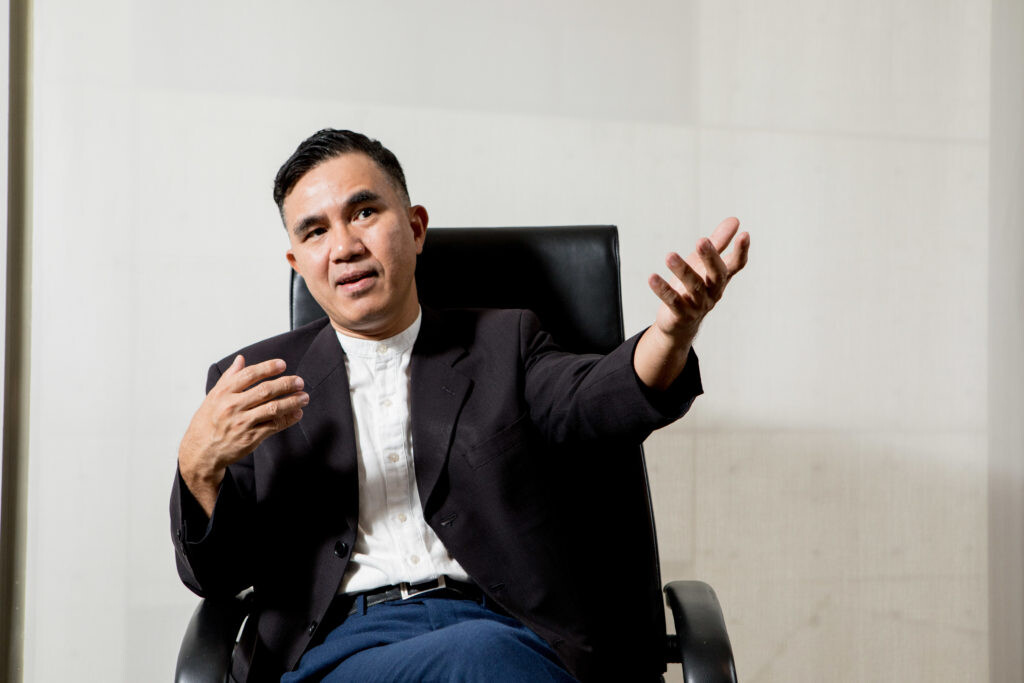
Tony Kuo, who has just left the position of the Dean of International Affairs, is now the Chair of English Taught Program in International Business.
He pointed out that, in Taiwan, the campus resources during winter and summer vacations stand nearly unused, which renders them optimal for the Asia Summer University. In addition, if we have the flexibility to move general education courses usually offered during semesters to summer vacations, it will facilitate students to plan their university days as early as possible, be they want to be exchange students or devoted in expertise projects. Furthermore, it is an effective strategy to enroll new students by allowing international students to take courses here during summer vacations and acquaint themselves with the university. After going back to their home countries, they will help with SCU’s publicity internationally.
Based on the three reasons, Tony Kuo asked the university to rearrange some general education courses from spring semester to summer vacation and invite foreign instructors from the sister universities to offer short-term lectures. This measure not only allows students to take courses taught by foreign instructors, but also forges a closer cooperation between SCU and its sister colleges. However, this is nothing short of “a chapter of blood and tears in history,” Kuo described it metaphorically. Since this measure will inevitably break the decades-long inertia in the university by turning the summer vacation into class days, it is bound to displease many people. It is absolutely a great challenge. To do, or not to do? Kuo chose the former.
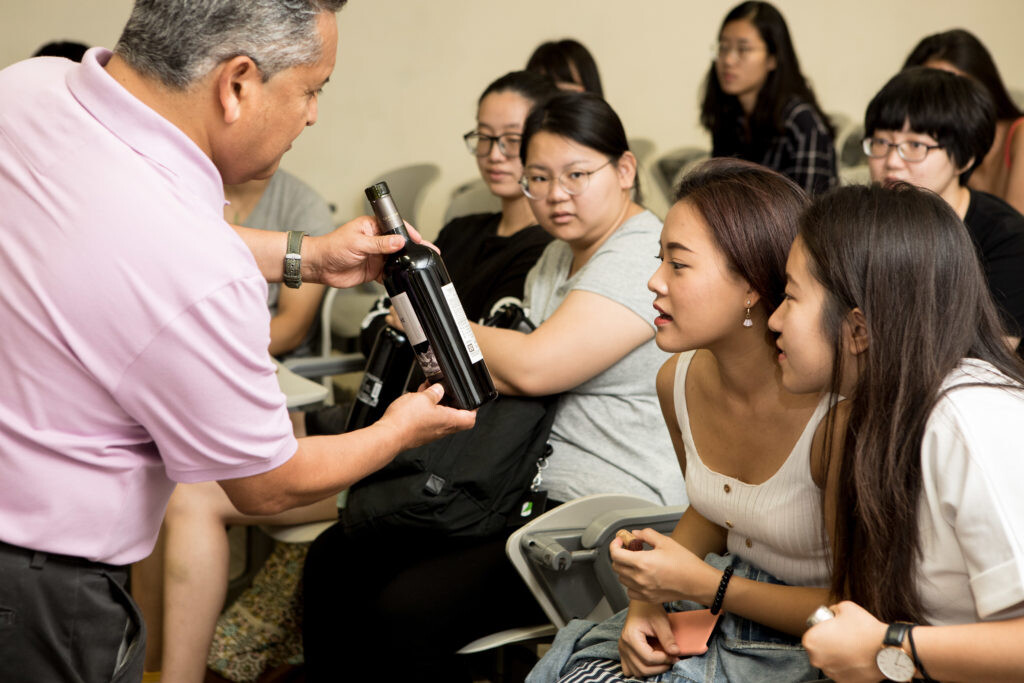
Wine Business and Beverage Management is a quite popular course in the Asia Summer University’s wide curriculum this year.
The aforementioned course of wine tasting is an attractive new acquisition in the Asia Summer University’s wide curriculum this year, and the full title of this course is Wine Business and Beverage Management. We invited Prof. Willy Augusto Aroca Aguirre from Fairleigh Dickinson University, who has long experience of teaching wine tasting and gourmet food appreciation, to teach the course in Taiwan. Another special arrangement in the Asia Summer University is to allow students who take the course to apply for the teaching assistant. On the one hand, the foreign instructor can turn to these students for assistance after arriving in Taipei. On the other hand, students have the opportunity to get well acquainted with their instructor.
As Aroca’s teaching assistant, Jonathan Zhuang said that he and the staff of the Office of International Affairs have maintained contact with Aroca by E-mail before he came to Taiwan. They picked him up at the airport and helped him prepare the food ingredients for the course. One time Aroca intended to use white wine as the accompaniment for fried shrimp noodles. Instead of using spaghetti, he asked Zhuang to prepare the thinnest noodles in Taiwan.
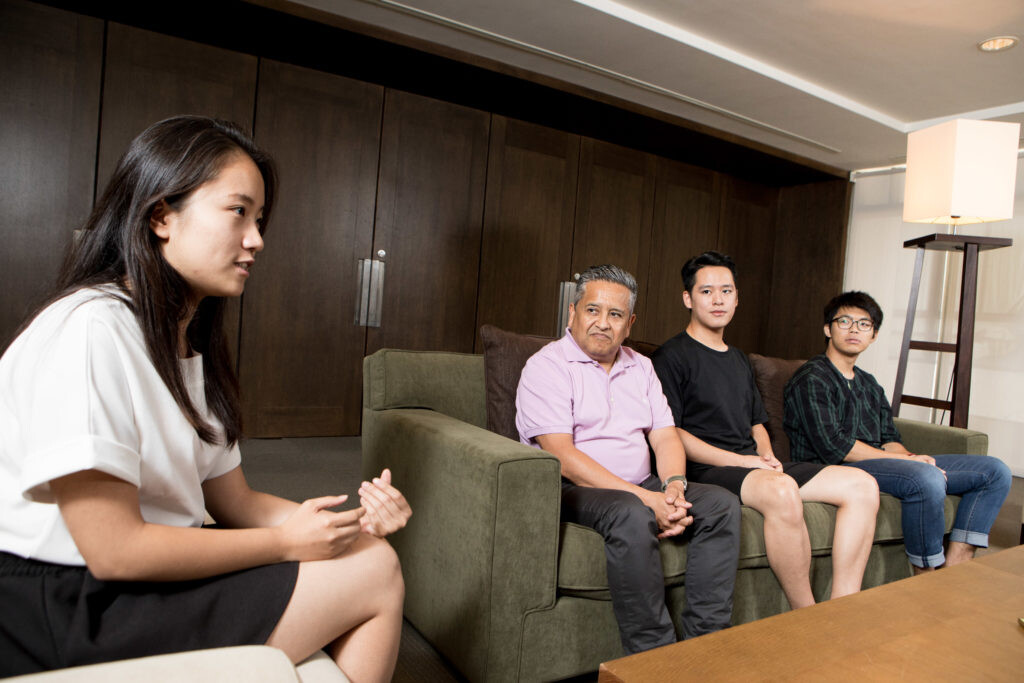
SCU arranged a student to serve as Prof. Aroca’s TA for the course.
Aroca explained that “localization” is one of the purposes he attempts to achieve through this course. The easier the availability of the ingredients, the better. Introducing students to the world of gourmet wine and food by reducing entry barriers will encourage them to cook more often at home. By doing so, they will no longer feel a sense of impotence or become resistant when they have the opportunity to taste more delicate wines and delicacies. Aroca also expects the design of this course to help the students refocus their attention from smartphones to real human beings, so that they can learn and cultivate basic social skills all over again. “The social media addiction is a global phenomenon. I hope this course will shift students’ focus back onto real interpersonal relationships.”
Apart from wine tasting, K-Pop and Korean language are also the focal points of the Asia Summer University. Prof. Youngjin Chun from Woosong University has taught “Expedition of K-Pop” at SCU for two years. The design of this course is suitable for all students, be they laymen to music or have an ear for it. Chun explained that the first half of the course is cultural introduction, and the second half allows the students to record their own works in a studio. The ten-day, 36-hour course enables the students to learn different things whether they know basics of music or not.
Prof. Chun’s teaching assistant Winnie Chen has played in a band since her senior high school days. Nevertheless, she is unfamiliar with K-Pop. Chen stated that Prof. Chun guides the students in a very simple way, such as explaining why K-Pop emerged, what “fan economy” is, and “how it generates profits.” “Prof. Chun focuses not so much on music theory as on the cultural aspect.” It was not until Chen took this course that she understood the complex structure and intense competition behind K-Pop. It is also through this course that she learned about how their entertainment companies control the market through social media. For example, they tend to raise topics on the Internet and coin new terms (e.g. fandom, and fan mind), thereby promoting their K-Pop idols.
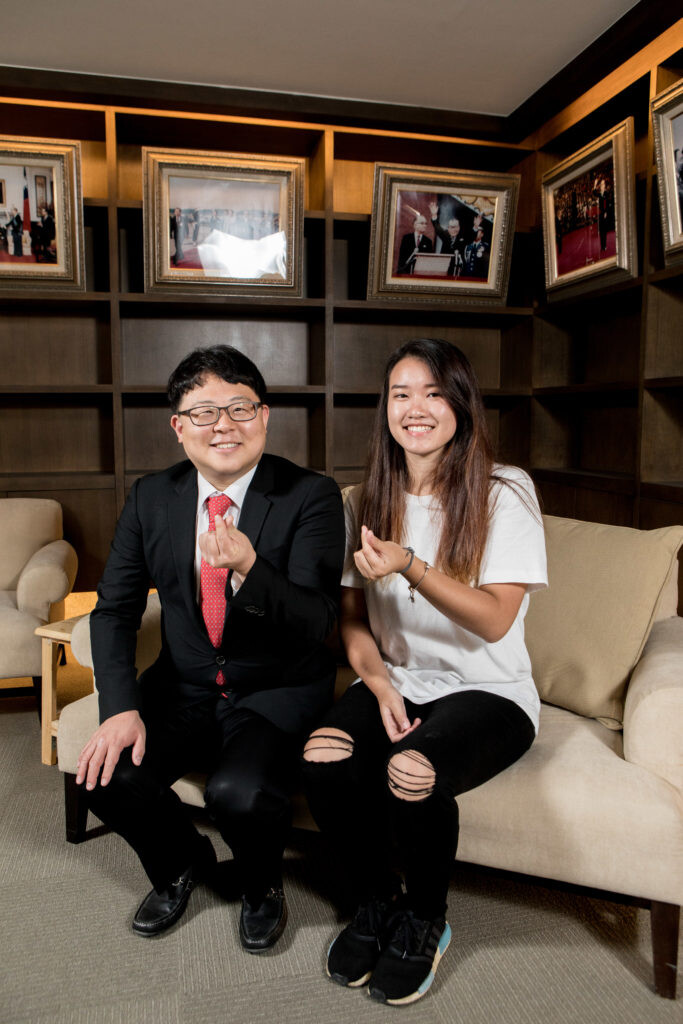
Prof. Youngjin Chun from Woosong University, and his teaching assistant Winnie Chen
Although this is the first time for Prof. Eun Sun Chin from Dongguk University to teach Korean language in Taiwan, she has considerable teaching experience in South Korea and has students from Taiwan. “By teaching this course in Taipei,” Chin said, “I got a better grasp of the difficulties that Taiwanese students encountered when learning Korean language.”
Prof. Chin designed the course mainly for beginners, but students who have reached the A1/A2 level can also improve their listening comprehension and oral expression in the class through her teaching in Korean and English. Eunice Chiang, a night-school student who takes the course, stated that there is no Korean language course offered in the night school, and she has difficulties in taking relevant courses during the daytime. No sooner did she see the Korean language course taught by a Korean instructor in the Asia Summer University’s curriculum, than she decided to take it without hesitation. “Since I don’t have many chances to talk to Koreans, I seized this opportunity by keeping close to Prof. Chin as much as I can, from whom I indeed learned a lot.”
By virtue of the Asia Summer University, SCU embodies the philosophy of the unity of theory and practice.
Judged from the positive feedbacks from the students, the Asia Summer University has yielded fruitful results. Launched in 2015, this project weathered the storm of low enrolment in its first year, and hundreds of students vie to take these courses now. Some students even actively ask about the curriculum next year. Tony Kuo is pleased with such an inquiry, which proves that he made a right decision to defy the structural inertia 7 years ago.
He further explained that SCU adopts a strategic, multi-order scheme to invite instructors from sister universities to teach in Taiwan. Such a scheme allows its students who plan to study or pursue advanced training abroad to aim at their favorite target universities or mentors. “This scheme has to be carried out step by step.” Kuo bluntly pointed out that the degree of internationalization should not be evaluated in terms of quantity. The evaluation of a university’s internationalization is meaningful only when quality is taken into account. That is, internationalization without deep roots or long-term results is meaningless.
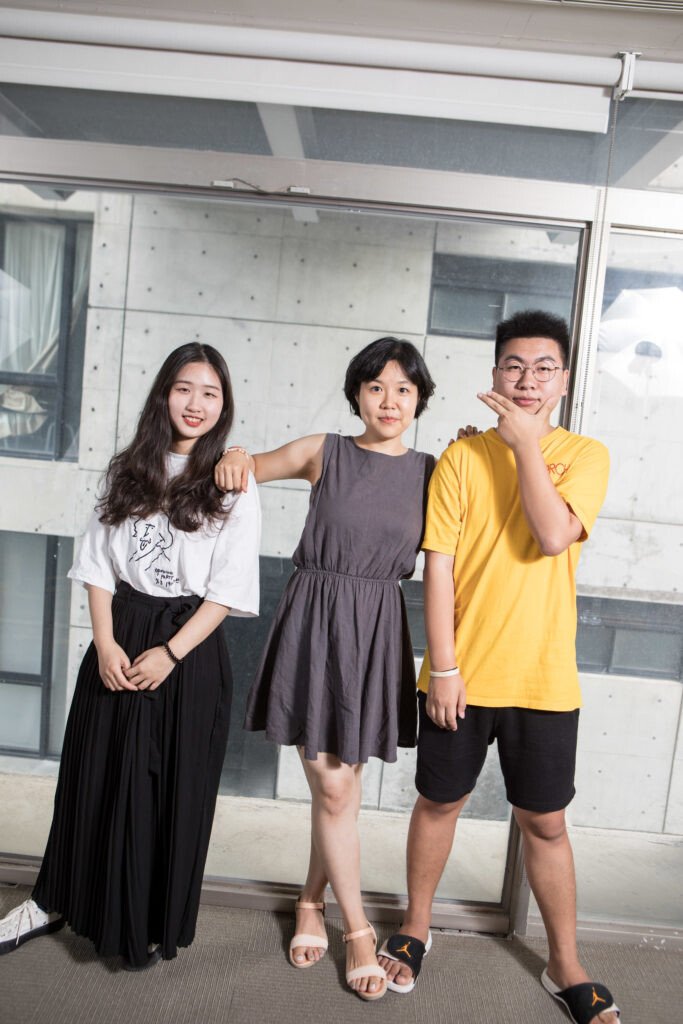
The pedagogic style and method of Prof. Eun Sun Chin from Dongguk University South Korea, are highly praised and appreciated by the students.
According to Tony Kuo, the Asia Summer University is still faced with some barriers despite the encouraging results it has produced. The main barrier is the two-semester system in Taiwan. What Kuo expects is that students can earn required credits in advance by taking courses during summer vacations, so as to plan their careers as soon as possible. Without the third semester, the credits earned during summer vacations have to be counted as the credits earned in the next academic year, which unavoidably limits the course the students can take (and the credits the students can earn) in that year. The Asia Summer University’s good intention is thus somewhat compromised.
Back to the underlying philosophy of SCU, its founder Tung-Min Hsieh disclosed that its name carries a profound connotation of “the unity of theory (knowledge) and practice (action),” and “to know is to act.” On the stony track towards internationalization, SCU has embodied this philosophy with its intrepid spirit, although it has not reached the ultimate goal yet.




